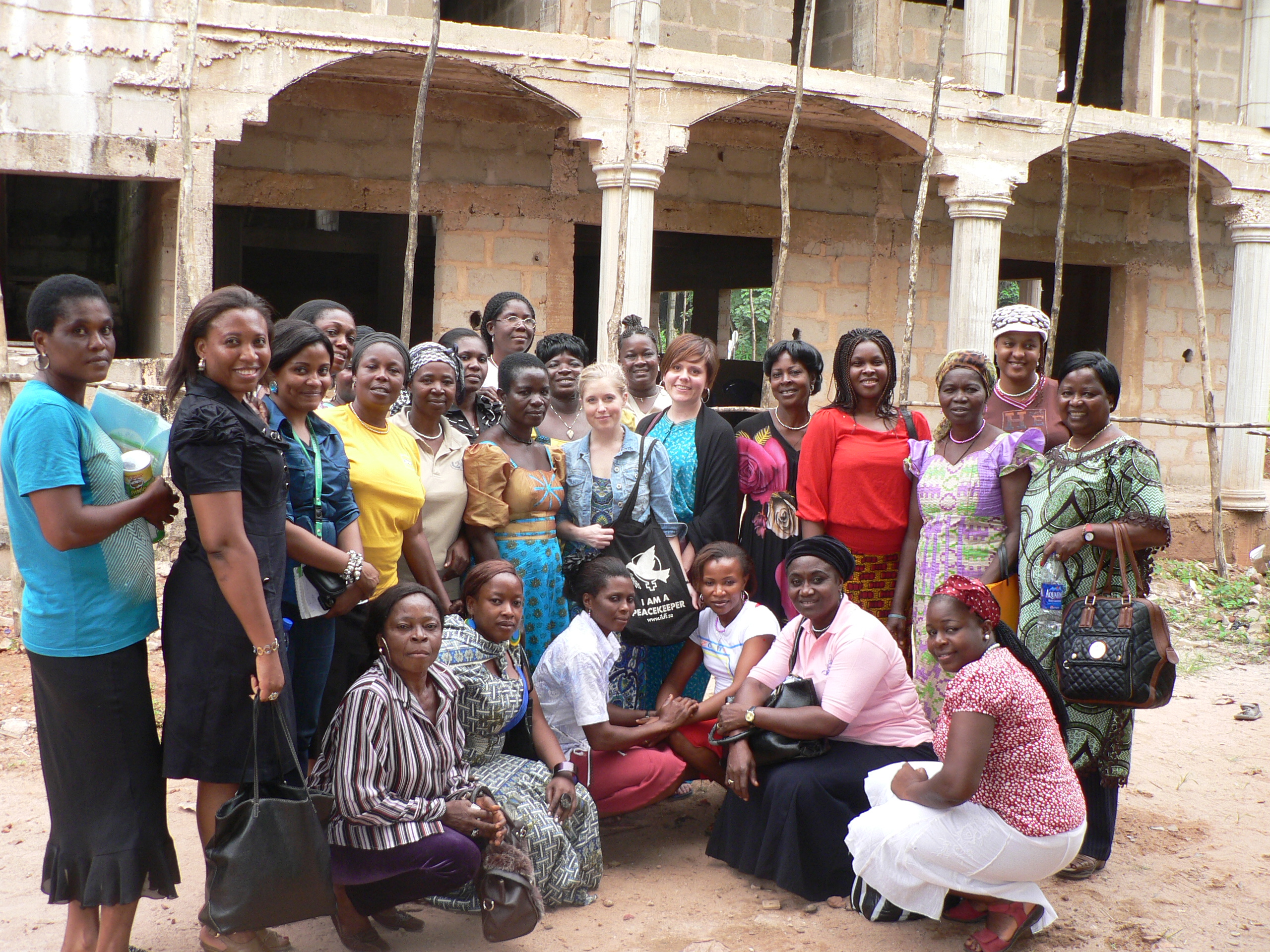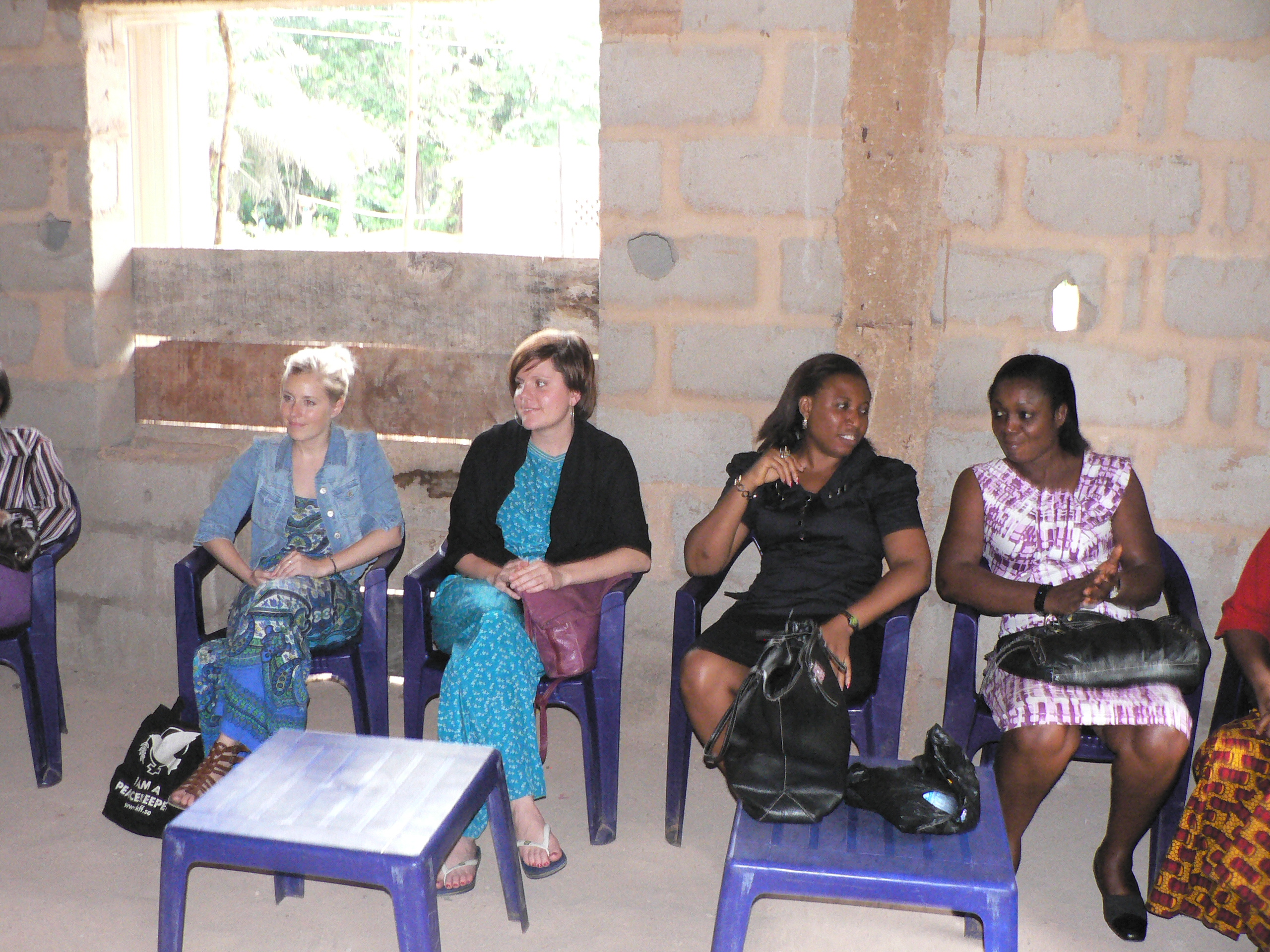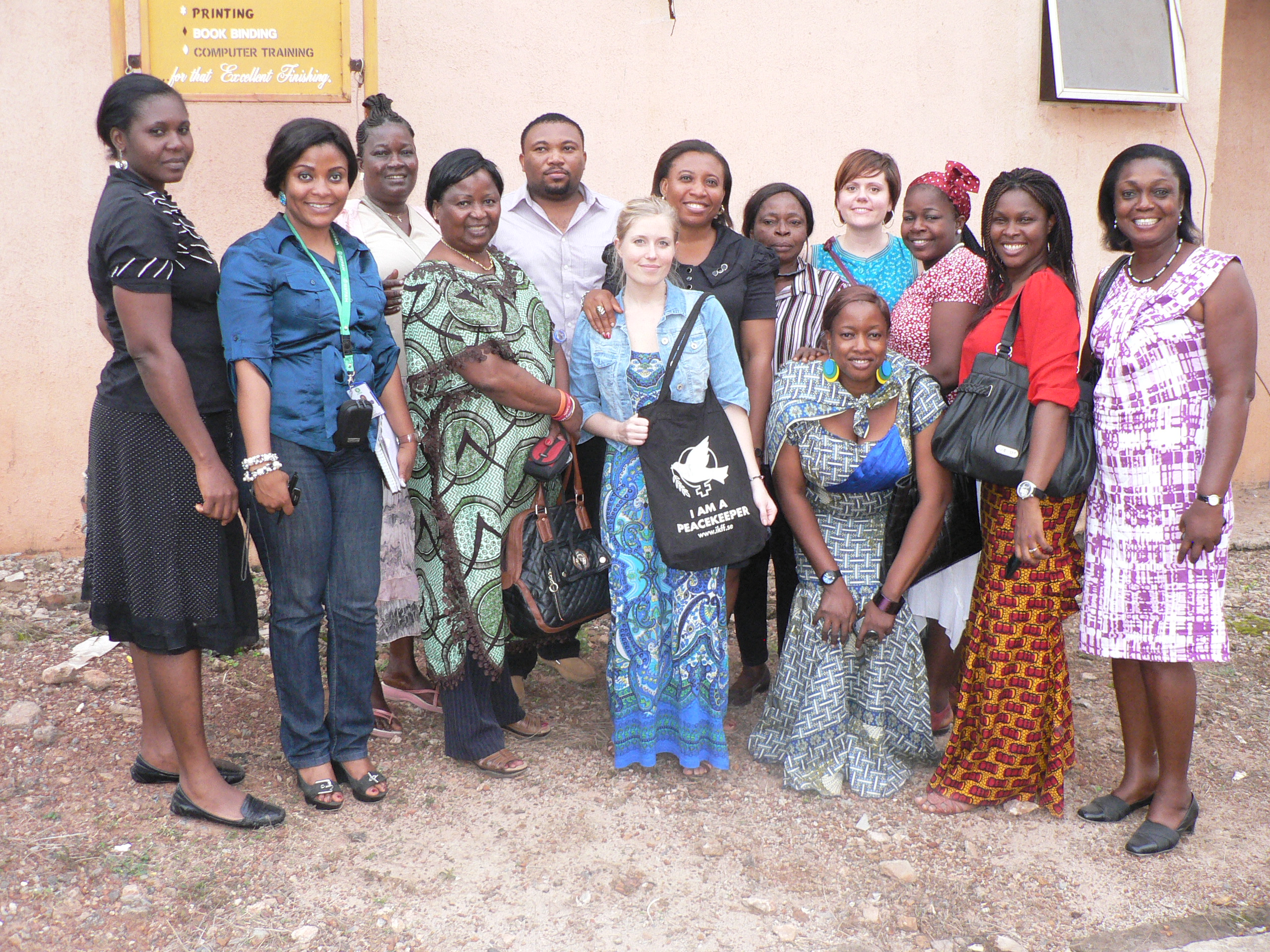BLOG: WILPF Sweden Trip to Nigeria
The Twinning effect
One of the greatest benefits of being part of a world wide international organisation such as WILPF is the valuable experiences you gain from keeping in touch with members from all different corners of the world.
Today WILPF has sections in close to 40 countries and the numbers of sections are steadily growin g. Every forth year WILPF holds its international congress, the time when emerging WILPF groups can be voted in and elected as official WILPF sections. At the last congress in Costa Rica 2011 as many as five new sections were elected-Democratic Republic of Congo (DRC), Nigeria, Mexico, Spain and Pakistan.
g. Every forth year WILPF holds its international congress, the time when emerging WILPF groups can be voted in and elected as official WILPF sections. At the last congress in Costa Rica 2011 as many as five new sections were elected-Democratic Republic of Congo (DRC), Nigeria, Mexico, Spain and Pakistan.
Even though all WILPF sections mainly work with a local and national focus, transforming the global WILPF vision into their country's specific context and needs, the urge to work across country boarders have increased with time. Many times due to the rapid globalisation it's becoming more and more important to connect the dots, to acknowledge how actions and events in one part of the world can cause an affect in the opposite part of the world. Sweden for example is the world's third largest weapon exporter per capita. The Swedish section therefore puts pressure on the government questioning Sweden's contribution to the global arms race. Using information from our sister sections, who live in contexts where arms is a security threat, facilitates our national advocacy work.
WILPF Sweden and DRC in Nigeria
The Swedish section's collaboration with other sections started to increase a few years ago and it has steadily developed since then. Besides the cooperation with the Nordic countries and the European network Sweden collaborate closely with the sections in Nigeria, DRC, Costa Rica and Colombia. An important part of the projects that we have together is to make time for experience sharing to make each section stronger trough learning from each other's similarities and differences.
One way to achieve this is through regional meetings between sections. Previously, Colombia met with Costa Rica and Nigeria met with DRC to discuss their work in the region. Last week we organised a slightly different regional meeting between Sweden, DRC and Nigeria. Two members from DRC, Annie Mbambi Matundu (President of WILPF DRC) and Sabine Wiawe (Treasurer of WILPF DRC) and two members from Sweden Josefine Karlsson (Secretary General of WILPF Sweden) and Tove Ivergård (International Coordinator of WILPF Sweden) travelled to Nigeria in the beginning of May.
The main purpose of the visit was to meet in person to have internal meetings concerning on going and future collaborations between Sweden, DRC and Nigeria, as well as discussing the possible expansion of WILPF's work in the African region. At the moment the most active WILPF sections in the region are Nigeria and DRC, however there are emerging groups that are close to becoming sections such as Ghana, South Africa, Burundi, Somalia and Cameroon among others.
1325 NAP processes
Our visit to Nigeria also created an opportunity for us to update each other on the work done in our different sections. We discussed the different 1325 National Action Plan (NAP) processes that had taken place in each country and WILPF's involvement in these. Both Nigeria and the DRC have NAPs however the two countries reveal two very different processes leading up to the finalization of the NAPs.
WILPF Nigeria together with other CSOs were part of the NAP consultations that took place in the south-eastern part of the country by the end of last year. The Nigerian government initiated the consultations that were partly funded by the Department for International Development UK (DFID). After regional one-day consultations with the civil society, without any further involvement or input from the ground, the government finalized the NAP. Joy Onyesoh (President of WILPF Nigeria) who took part in the consultation sighs a bit when she explains that even though the NAP is drafted hardly anyone from the civil society operating outside of Abuja have read the draft of the NAP so they still don't know what the outcome of the consultation were and what that might has been used as input for the final NAP. There was a validation of the NAP in December last held in Abuja which made it hard for a broad representation of Civil Society due to lack of time and funding to travel all the way to the capital. One of WILPF Nigeria's partners recently informed President Joy that there had been two more validations and that the NAP had not yet been adopted due to inputs and corrections made by the civil society.
In DRC the NAP process started already in 2009 but was initiated and driven by the Civil Society. Annie Mbambi Matundu (president of WILPF DRC) has been part of the process from the beginning. The DRC NAP was finalized in 2010 and the government acknowledged/approved it by organising an official launch of the plan. Despite international and civil society pressure the Ministry of Gender still hasn't signed the plan. NAPs around the world normally become official as they are signed by the government, which also makes it easier to hold the government accountable to follow through the implementation of the NAP. In October 2012, a Global Open Day of UNSCR1325 was held during 3 days in Kinshasa and another Agreement was signed to mobilize the funding for the implementation of this DRC NAP. WILPF/DRC, particularly the President Annie Matundu Mbambi signed this agreement on behalf of DRC Civil Society.
These are two quite opposite examples of NAP processes. Nigeria with a government driven process with limited participation of the civil society vs. the DRC process almost purely civil society driven. The ultimate process would be a middle way between these two processes, with equal and meaningful involvement and engagement by both the government and the civil society.
WILPF Nigeria
Besides fruitful discussions and experience exchange between DRC, Nigeria and Sweden we were also invited to see and take part in the work WILPF Nigeria does nationally and locally. We were honoured to meet several of WILPF N igeria's members as well as staff and board members. With President Joy in the forefront WILPF Nigeria made sure that our visit was efficient, extremely pleasant and memorable. We were invited to see their national office in Enugu where they at the moment have two part-time working staff Jennifer Okechukwu and Ester Ani who works next to Joy who still is the main coordinator of WILPF Nigeria's projects.
igeria's members as well as staff and board members. With President Joy in the forefront WILPF Nigeria made sure that our visit was efficient, extremely pleasant and memorable. We were invited to see their national office in Enugu where they at the moment have two part-time working staff Jennifer Okechukwu and Ester Ani who works next to Joy who still is the main coordinator of WILPF Nigeria's projects.
Part of the work WILPF Nigeria does is to organise skill acquisition workshops in different communities surrounding mainly Enugu, Abuja and Lagos where their three main branches are located. The workshops enables women from the grassroots level to learn more about issues concerning peace and security, women's participation not least in the upcoming election processes in the country . The workshops also include a practical learning part for example soap making or jewellery making with beads. These are valuable skills for the community women, which they can use in order to start their own little business to earn extra money on the side of their regular jobs. We got the chance to attend one of these workshops and it was rewarding to see what an efficient learning technic the structure of the workshops offer. The session started with jewellery training that created a good mood among the participants. The atmosphere suddenly felt a lot more relaxed and secure thanks to the beading activity. This created a perfect environment for the more serious discussions that followed after the practical part of the workshop.
Stronger united
We were all enlightened to see and take part of the activities organised by WILPF Nigeria and also to meet their partner organisations who all together work for peace and security. Nigeria is a country which is mainly viewed as an important trade partner by the international community neglecting the on-going conflict between the rebel group Boko Haram and the government in the north of the country. A conflict that most likely will continue to spill over to the rest of the country creating a civil war if nothing is done urgently. WILPF Nigeria together with other civil society actors stresses the importance to already now start preventive work for the upcoming national elections in 2015 in order to diminish the violence and instability in the country that most likely will follow if nothing is done. 
In October we will follow up on our meetings together only this time Nigeria and Sweden has been invited to visit WILPF DRC. We are truly looking forward to this and to learn more about the WILPF DRC's work. WILPF is becoming more and more visible in the DRC, many times thanks to President Annie's involvement in a broad number of local, national and regional projects concerning women, peace, security and disarmament issues.
We will continue to follow WILPF Nigeria and DRC's work and as members of WILPF we are so proud and happy for the remarkable development the sections has gone through in such a short time. We are certain that they will continue to get stronger for everyday that passes and that the amazing work they do will make a huge difference in the struggle for peace and women's empowerment in their countries and in the African region.
Thank you so much for having us,
Love WILPF Sweden
